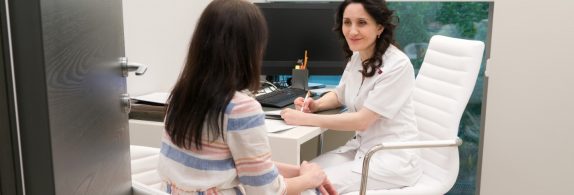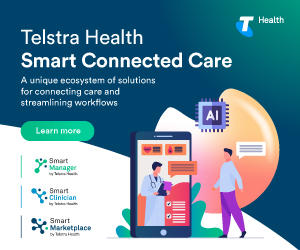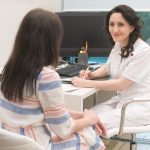How patient engagement impacts cancer awareness
This month is all about cancer awareness, with world cancer day on the 4th, Ovarian Cancer Awareness Month and Bowel Cancer Australia’s ‘Don’t wait until it’s too late’ campaign, all falling in February. In this article, we take a look at some ways doctors can help educate and inform patients about the different signs and symptoms of cancer, as well as how to better manage screening, diagnosis and treatment.
Critical global issues in cancer care
According to the World Cancer Day Organisation, the key issues facing cancer diagnosis, treatment and care today are:
- Awareness: Greater understanding, while dispelling myths and misinformation
- Prevention and risk reductions
- Equity in access to cancer services
- Government action and accountability
- The wider emotional impact of cancer on the patient, family, caregiver and community
- The financial impact on individuals, families and the economy
The role doctors in education and awareness
The World Cancer Day Organisation states over one third of cancers are preventable. It stresses increased awareness and accurate information and knowledge can empower all of us to recognise early warning signs, make informed choices about our health and counter our own fears and misconceptions about cancer.
Worryingly, ovarian cancer is still the deadliest women’s cancer and this has not changed in 30 years. Every day in Australia, four women are diagnosed with ovarian cancer and three will die from the disease. According to Ovarian Cancer Australia, change starts with awareness.
And patients are hungry for more knowledge, MedicalDirector’s recent Patient Engagement Survey 2018, found. The report revealed patients expect a lot more information about their health than they are currently receiving from their doctors, and are instead, resorting to searching online to find out more about their condition, both before and after their consultation.
The research shows most patients (78%) conducted online research to find out more about their condition or prescribed treatment, both before and after visiting their doctor. But a majority 80% say they would have actually preferred that information come directly from the GP or Practice website, assuming it is of high quality.
When it comes to the sensitivity and fear around cancer signs and symptoms, this health information needs to be delivered more freely, and with a level of compassion. Patients should be encouraged to see their doctors to discuss signs or symptoms, rather than replacing a doctor’s visit with ‘Dr Google’.
“As the white paper alludes to, patients want doctors to be educating them more, that’s the bottom line,” MedicalDirector’s Chief Clinical Advisor and GP, Dr Charlotte Middleton, says. “And the survey reveals patients prefer doctors to be the source of that information, rather than Dr Google.”
“But the reality is, they are searching for that information online. As Doctors, we really don’t want our patients to be going to the Internet for answers, as a typical patient lacks the ability to interpret and contextualise the information. So the onus is on us, as doctors, to provide relevant and accurate information to patients.”
For instance, doctors can access and share HealthShare Fact Sheets, integrated in MedicalDirector’s software, to deepen patient understanding and drive better, more personalised clinical outcomes.
“You can quickly email them or print them – and it only take a few minutes,” she said. “What’s also powerful about a factsheet is a patient can then pass that information on to their family, which means their wider support group can also understand the patient’s condition and how to offer the right support.”
Transcending the four walls of the clinic
According to founder and CEO of patient engagement platform HotDoc, Dr Ben Hurst, patient engagement is a set of practice/patient interactions, which transcend the four walls of the consultation room and emphasise a proactive (rather than reactive) healthcare experience.
“We perceive that every time a patient makes a booking, receives a reminder or checks in on our platform is an opportunity to make him/her healthier,” he says.
- Does the 25-year old student understand the importance of regular skin checks?
- Has the 50-year old patient understood the new free home test bowel cancer screening options available?
- Does your 40-year-old mother know a pap smear doesn’t detect ovarian cancer?
“In the patient engagement model, the practice is the coach, the patient is the captain and their relationship is strong and enduring,” he adds. “It is now possible to impact health outcomes through more frequent and targeted interactions across the continuum of the patient experience.”
Patients putting off screening appointments?
Research shows that 90 percent of bowel cancers can be successfully treated through early detection, reducing the number of family, friends, and loved ones who die each year from the disease.
Detecting any unusual symptoms or signs of cancer can be a frightening experience, but for many patients, the hassle of phoning up for an appointment or waiting in a crowded room can be a turn off to check things sooner. However any delay, especially when it comes to cancer detection, prevention, diagnoses and treatment, can be critical.
SMS reminders, online bookings, self-serve check-in kiosks, push notifications, email reminders and more, smarter use of online patient engagement tools can help encourage patients to make their appointment and not put them off.
How MedicalDirector can help
At MedicalDirector, our innovative clinical and practice management software integrates with a wide range of Marketplace partners, which offer a range of helpful reminder systems, online booking tools and recall features to help medical practices boost patient engagement and continuity of care.
These include:
Recalls and Reminders
- MessageNet: An SMS service designed to improve the productivity and mobility of your practice, allowing clinicians to send SMS notifications for recalls and reminders. MessageNet also integrates with MedicalDirector’s Bluechip software, making it ideal for specialists who need to prevent missed appointments and improve continuity of care.
- MessageBird:A cloud communications platform with its own telecommunications carrier infrastructure, designed to simplify communication with patients via SMS.
Full suite of Patient Engagement Solutions
- AutoMed: Offers sophisticated online appointment bookings, caller ID and self-serve check-in kiosks with Medicare card readers and 100 languages to cater for changing demographics as well as auto billing.
- HotDoc: Provides a full suite of software solutions, including online bookings, reminders, recalls, check-in kiosks, patient survey tools and other products, which are customisable and empower practices to better connect with patients.
- MyHealth1st: Enables 24/7 real time appointment bookings online, as well as automatic recalls and reminders.
For more information on how your MedicalDirector software can integrate with our Marketplace partners to help reduce patient no-shows in your practice visit:









